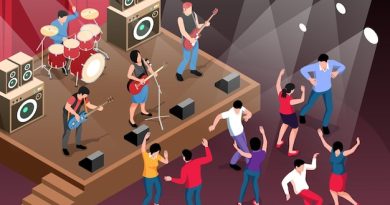7 Ways That Children Can Benefit From Music
7 Ways That Children Can Benefit From Music
Children value music greatly. A lullaby may put a newborn to sleep, while a song can stimulate a toddler. Music benefits children in several ways. Musical activities are much more vital for a child’s overall development. Without a doubt, the most essential thing to learn is music.
It is a crucial aspect of the arts because, like nothing else, it helps people feel things, ignites creativity, and promotes a child’s ability and enthusiasm. Education experts have often said that music and academic success go hand in hand. But that’s not the only thing music has going for it. Learning music will assist a youngster in several ways.
It develops a child’s brain, improves their social skills, makes them happier overall, and provides a fresh perspective on the world, among other benefits. Although it is OK to introduce your kid to music later in life, getting them started early allows them to get the most out of music by developing a lifetime relationship with it. Here are seven explanations for why music should be a big part of a child’s life:
Music stimulates the mind.
According to neuroscience studies, youngsters in Colorado who attend music programs for kids have much higher brain activity than adults who do not take music classes. Several studies have indicated that musical language benefits a child’s overall development.
According to WebMD, studying music helps children become smarter by strengthening the left side of the brain, which is liable for language and thinking. Playing a musical instrument or whistling a beat helps to strengthen the brain. This results in increased brain activity, which enhances a child’s IQ.
Music helps to relieve tension.
Exams, deadlines, instructors, a rigid code of behavior, and other pressures at school make learning music essential for young people. Music, without a doubt, may help a youngster feel better or calm them down. You will always feel joyful and fulfilled when you do anything musically.
According to a Stanford University study, music with 60 beats per minute may soothe a kid’s mind, and music played for over 45 minutes can put a youngster to sleep. So, after a long day of studying, parents ought to allow their children to play music to assist in soothing their thoughts and boost their capacity to concentrate.
Music inspires creativity.
Creativity is among the top five skills businesses seek in new workers. Music encourages children to engage their imaginations, which helps them develop their creativity. Well, creativity and fresh ideas are essential components of learning music. When these two factors combine, a youngster becomes more imaginative and adaptive.
Working with the song is also an excellent approach for a youngster to learn how to think critically. Parents should motivate their children to study an instrument or enroll in a music lesson to express themselves creatively while still doing well in school.
Music boosts self-esteem and self-confidence.
Music is more enjoyable than other disciplines. As a result, a child’s objectives in this topic are also enjoyable. When children strive towards and achieve such objectives, it helps them feel great about themselves and enhances their self-esteem. Furthermore, musical activities help children to express themselves and have their interests recognized and valued by others.
This sense of acceptance gives children a lot of self-confidence. When a new song, melody, or lyric encourages a youngster to do new activities and confront new obstacles, their confidence rises even more. Learning music is enjoyable for children to realize their full potential and ambitions.
Music helps to develop social skills.
In a music lesson or course, children are seldom the only ones. Kids often form bands, sing in choirs, and create songs together. These activities teach children valuable social skills such as teamwork, getting with others, and connecting. Children learn to form long-lasting connections and identify individuals who share their interests.
In an era where youngsters are more inclined to hang out alone and communicate with one another online, music allows them to reconnect in person. Working in a group gives children a sense of belonging and educates them on getting along with others.
Music is a means to express oneself.
There is no greater way to express your emotions than via music. When children use musical instruments, they may express themselves via melody and lyrics. This is a good method of expressing oneself, and most youngsters learn more about themselves.
Composing music allows a youngster to express themselves more fully by enabling them to select lyrics that speak to them. The best gift a parent can provide their kid is the ability to communicate with others completely via music.
Music Improves Memory
People have become too reliant on technology to do their tasks rather than use their abilities. Because technology has rendered our bodies lazy and our brains forgetful, almost everyone sets alarms, reminders for their calendars, and other reminders these days.
Music helps children calm down and concentrate better in a world of distractions because it involves mental and physical memory. There aren’t many tools available to assist individuals in learning music lyrics or chords. As a result, when children listen to or play music, they rely on their memories or push them to their limits.
Conclusion
Music education helps students to concentrate on their emotional and spiritual well-being while learning numerous cognitive and technical abilities. Music has also aided many people in developing empathy, compassion, teamwork, and leadership abilities. Today’s children are so sensitive that practically everyone struggles to figure out who they are and find their voice.
Music allows young children to look beyond the mundane and feel like they participate in the community. However, parents should not force their kids to do anything because they believe it is the better option. Children begin to detest having to do things. Musical activities that children like provide the greatest benefits.
They are attracted to the art of studying more when they may pick any musical activity they choose. Music education for children is beneficial. Music brings out the best in children, whether singing a song, dancing spontaneously, playing an instrument, or participating in scheduled musical activities alongside other children.








